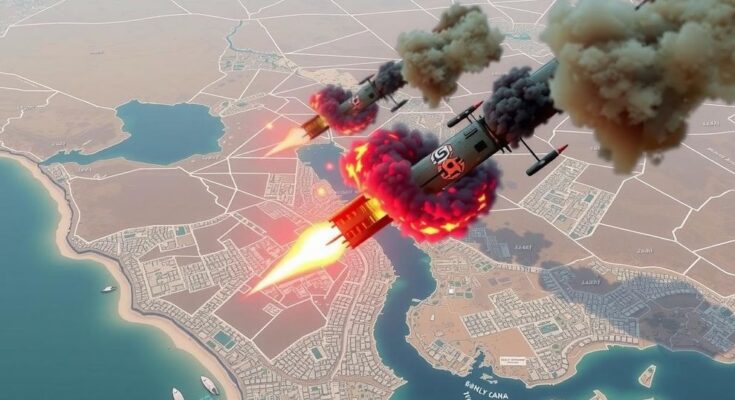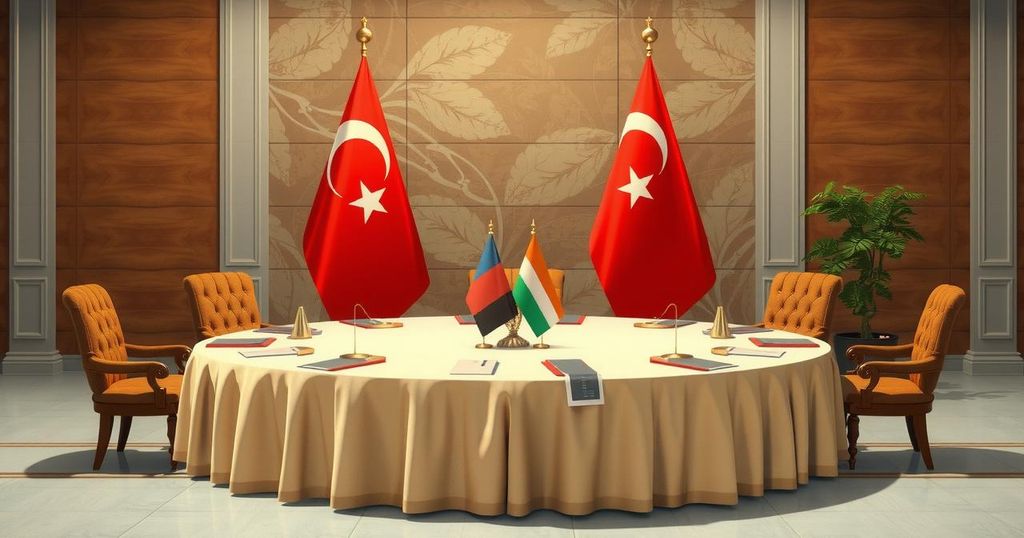Recent negotiations between Israel and Hamas, mediated by the United States and Qatar, show signs of progress toward a ceasefire and hostage release agreement. A proposed plan involves a phased approach to the release of hostages in exchange for Palestinian prisoners, amid ongoing tensions surrounding military presence and governance in Gaza.
Amid renewed optimism for a ceasefire and hostage release agreement between Israel and Hamas, recent negotiations have yielded hopeful signs. The involvement of the United States, Qatar, and Egypt in mediating talks has revitalized discussions. U.S. President-elect Donald Trump’s call for a deal before January 20 has reportedly influenced the urgency of negotiations. Since the death of Hamas leader Yahya Sinwar, more pragmatic representatives within the organization are reportedly participating in talks. A Hamas official indicated that discussions are in the final stages, with announcements expected soon from Qatar and Egypt.
Significant to the negotiations is the fate of hostages taken during the October 7 attack, wherein Hamas captured 251 individuals, of which 96 are still believed to be alive. A proposed three-phase plan includes a ceasefire and the gradual release of these hostages. The first phase would involve a swap of six-week Israeli civilian hostages and female soldiers for hundreds of Palestinian prisoners. As part of this phase, Israel would withdraw its military presence from specific regions along the borders.
The second phase would focus on the release of Israeli male soldiers in return for Palestinian prisoners, including those serving long-term sentences. Eventually, the final phase could lead to formal recognition of the end of hostilities and the commencement of reconstruction efforts in Gaza. However, issues including governance in post-war Gaza remain contentious, particularly with regard to Hamas’s potential role. Prime Minister Benjamin Netanyahu has made it clear that he opposes the idea of Hamas regaining control of the territory.
As engagement continues despite previous failures to reach a lasting truce, the path forward is laden with complexity, particularly concerning the future of the Philadelphi Corridor and the management of crossings, with Israel’s military presence being a contentious topic of debate. The next steps will be crucial in determining the potential for peace and stability in the region.
The ongoing conflict between Israel and Hamas has been exacerbated by a cycle of violence and failed negotiations. The October 7, 2023 attack significantly altered the dynamics, resulting in numerous hostages taken by Hamas. The international community, with mediators such as Qatar and Egypt, has sought to facilitate dialogue toward a ceasefire and resolve the hostage crisis. Within the complex political landscape, the roles of various leaders and the historical context of Israeli-Palestinian relations play a crucial role in the current negotiations. The governance of reconstructing Gaza remains a highly polarized topic, as conflicting interests could hinder an effective post-conflict management framework.
In summary, the recent negotiations between Israel and Hamas signal a potential shift towards a ceasefire following a turbulent period characterized by violence and hostage crises. While the involvement of international mediators is promising, the success of these discussions will depend on resolving key challenges, notably the governance of Gaza and Israel’s military presence. Ongoing talks could pave the way for an agreement, although definitive outcomes remain uncertain at this juncture.
Original Source: www.arabnews.com




